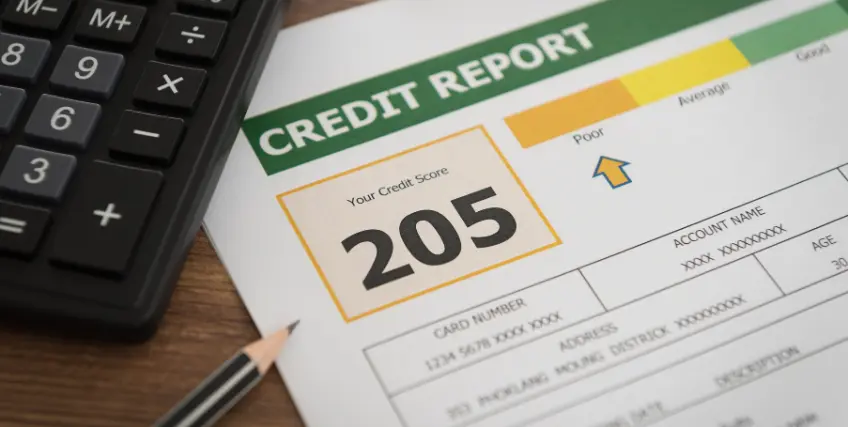Merchant Cash Advance vs. Asset-Based Lending: Which is Right for Your Business?
January 10, 2025 | Last Updated on: January 10, 2025

There comes a time for most small business owners when you need money. Whether it’s to increase cash flow during an economic downturn or to take advantage of a business opportunity, you need capital you don’t have. So, how do you get it?
Many business owners turn to traditional loans from lenders like banks and credit unions. Others, however, pursue merchant loans like merchant cash advances (MCAs). What’s the difference and how do you choose? We answer that and more here.
Whether you’re in a cash crunch or you’re looking to grow, small business owners need access to capital. There are many small business financing options available to entrepreneurs, but not all of them make sense for every business.
If you’re looking for capital, but you have a poor personal credit score or business credit score, your business is brand new, or your monthly revenues are low, you may not qualify for a traditional small business loan. There are financing alternatives, however.
Merchant cash advances and asset-based lending are two of the best solutions for small business owners who can’t get or don’t want a traditional bank loan. We explain both types of business lending here.
In this article:
- Learn the differences between asset-based loans and merchant cash advances
- Explore the benefits and drawbacks of each type of financing.
- Understand what kind of business financing is right for your business.
What is a Merchant Cash Advance?
A merchant cash advance (MCA) is a commercial agreement between two companies, in which an MCA provider gives a small business an upfront lump sum of cash in exchange for a percentage of future sales. This type of alternative financing sounds like a loan, but as it’s between two businesses rather than a bank and a business, it’s technically not a loan.
Rather than an interest rate, a merchant cash advance uses what’s as a factor rate. This number, usually between 1.1 and 1.5, is multiplied by the funding amount to determine the total repayment amount.
For example, if a business borrows $20,000 with a 1.4 factor rate, the total repayment amount would be 20,000 x 1.4, or $28,000.
Usually, a business repays this amount through its daily credit card sales and debit card sales. Instead of making a monthly fixed payment, the business will pay a percentage of daily or weekly sales. As such, sometimes payments will be very small, sometimes it may be a bit higher.
A business merchant cash advance can be used for any business need, and is especially useful as a short-term working capital solution. They have lower qualification requirements than traditional funding and a much faster approval process. Some MCA providers can go from application process to depositing funds in your business bank account in the same day.
What is an Asset-Based Loan?
An asset-based loan is very similar to a traditional bank loan. This type of lending uses a personal or business asset — like real estate, stock holdings, or a fleet of vehicles — as collateral to secure a cash loan. Like traditional financing solutions, you’ll make fixed monthly payments to pay back the loan.
An asset loan or an asset-based line of credit is a good solution for businesses that need cash to grow or navigate an economic downturn, but don’t have the active cash flow to get approved for a loan.
Banks and credit unions review a business’s bank statements and financial statements during a loan application. If the bank feels your business isn’t generating enough cash flow or has enough cash assets to repay the loan, it may permit an asset-based loan if you have valuable assets.
Asset-based lending can be extremely risky for borrowers and should only be used as a last resort. If you fail to repay the loan, the lender can take control of your collateral, leaving you with nothing. As such, you should only pursue an asset loan or asset-based line of credit if you have no other means of securing capital and you’re positive you’ll be able to generate the cash flow to pay back the loan.
Which Financing is Right for Your Business?
There are pros and cons to both merchant loans and asset-based loans. The right choice for your business depends on a range of factors, including your type of business and how you plan to use the money. We go into specific examples in the next section, but here are the broad strokes of each financing type:
| Merchant cash advance | Asset-based loan | |
|---|---|---|
| Top features | Fast funding, low eligibility requirements, no collateral | Cash loan based on collateral value, fixed repayments |
| Funding time | Same day available | One week to 90 days |
| Interest rates | Factor rates between 1.1 and 1.5 | 5.25% to 15% |
| Repayment schedule | Daily or weekly in percentages | Revolving line of credit to 7 years |
| Max loan amount | Up to $1 million | $5 million+ |
| Prepayment penalties | No | Depends on lender |
Pros and Cons of Merchant Cash Advances
Pros:
- Fast funding
- Easy application process
- Low eligibility requirements
- Flexible repayment structure
- No collateral or personal guarantee
Cons:
- Sometimes confusing terms
- Sometimes high origination and additional fees
- Frequent repayments
Pros and Cons of Asset-Based Lending
Pros:
- High loan maximums
- Fixed payments
- Builds credit
Cons:
- Potentially high interest rates
- Risk losing collateral
- Requires high-value collateral
How to Choose the Right Funding
To choose the right funding for your business, you need to understand how much money you need, how you’ll use the funds, and how fast you need the money. These three core questions will help you narrow down your funding options.
Depending on your business’s current financial situation, either an asset-based loan or merchant cash advance may make sense for your business. Some specific scenarios include:
You Have Bad Credit: Merchant Cash Advance
Although asset-based loans are primarily secured by assets, a bad credit score will land you with a higher interest rate. It might keep you from qualifying at all. (On the other hand, good credit may qualify you for lower interest rates and better loan terms.)
Merchant cash advances tend to have lower minimum credit score requirements and typically don’t require any collateral. An MCA isn’t a bad credit business loan, but it’s close. As such, it can be a great solution for startups and business owners with a poor credit history to get the funding they need for their businesses.
An important caveat to note, however, is that MCAs do not help build credit. They’re not reported to credit bureaus.
You Have Significant Physical Assets: Asset-Based Loan
Businesses like restaurants, farms, manufacturers, construction companies, landscapers, and many more need machinery and equipment to do their jobs. This machinery and equipment is obviously valuable to executing the work, but they’re also significant assets.
If business is slow, or you need money to get through a seasonal downturn, this collateral can secure an asset-based loan. That way, you can get the money you need to meet immediate expenses and pay back the loan when work picks up again.
You Take Credit Cards: Merchant Cash Advance
MCAs are typically repaid through a percentage of credit card transactions. While any type of business could get an MCA, it’s easier to process repayments quickly when you’re collecting credit card receipts.
You Need a Lot of Cash: Asset-Based Lending
Business merchant cash advance companies usually offer lower funding amounts than traditional lenders. Depending on the value of your assets, you could get access to a lot more cash through an asset-based loan or line of credit than you could through an MCA.
For instance, if your construction company is using a fleet of outdated machinery, that machinery is still worth something. Putting up a fleet of old machinery as collateral for a loan may be enough to purchase a smaller fleet of more efficient, modernized machinery. The increase in production and efficiency may offset the cost of the loan.
Seasonal Businesses: Both
Merchant cash advances are popular among seasonal businesses because of the flexible repayment schedules. You pay a percentage of sales, so when business is slow, you pay less. That’s great for a restaurant in a resort town that has much less business in the winter than in the summer.
However, seasonal businesses with significant physical assets can also take advantage of an asset-based loan. That same restaurant could use kitchen equipment as collateral to secure a loan to renovate or refresh the kitchen in the offseason, then pay the loan back in the busy summer season.
Need Quick Access to Cash: Merchant Cash Advance
Emergencies happen in business. When your small business needs cash to cover unexpected costs, an MCA can help. With same-day funding available from many providers, you can apply and get the cash you need to meet urgent business needs quickly.
Conclusion
Every business owner thinks about financing and debt differently. The right funding option for your business depends on a range of factors, including the type of business, how you’ll use the money, and your appetite for debt. There are advantages and disadvantages to each type of financing, including merchant cash advances and asset-based lending.
MCAs are good options for business owners with bad credit or who need a very fast increase in cash flow. Asset-based loans make sense for businesses with significant physical assets and not a lot of cash flow.
FAQs
What is a merchant cash advance?
A merchant cash advance (MCA) is a commercial agreement between an MCA provider and a small business, in which the provider gives the business an upfront lump sum of cash in exchange for a percentage of future credit card sales or other accounts receivable.
What is an asset-based loan?
An asset-based loan is an upfront, lump sum payment that is secured by a borrower’s physical assets. This collateral is usually real estate, equipment, or machinery.
How to choose the right funding?
Choosing the right funding for your business depends on how much funding you need, how you’ll use the money, and how fast you need it. If you need funding very quickly, a merchant cash advance is a better solution than an asset-based loan. If you’re looking for a very large amount of money, asset-based lending may be a better path.
What are the benefits of a merchant cash advance?
The main benefits of an MCA over other forms of financing include fast funding, low eligibility requirements, and flexible repayments.
What are the benefits of an asset-based loan?
The main benefits of asset-based lending are higher loan maximums (depending on the value of the collateral), fixed repayments, and the opportunity to build credit as you pay back the loan.
Frequent searches leading to this page
asset backed loan, asset based lending loan, revenue based business loans, asset based hard money lenders
Recent Articles
Related Articles

Can You Renegotiate Terms on MCA Cash Financing After a Default? What Business Owners Need to Know
November 27, 2024

Business Loan or Merchant Loan? Understanding Loan Options for Your Business
November 25, 2024

Avoiding the Debt Trap: How Stacking MCA Business Financing Can Hurt Your Business Credit
November 7, 2024

Why MCA Business Funding May Be Ideal for Retailers Looking to Expand Inventory
November 5, 2024

Merchant Cash Advance vs. Asset-Based Lending: Which is Right for Your Business?
January 10, 2025

Merchant Cash Advance vs. Traditional Business Loans: Which is Right for Your Business?
January 10, 2025

Merchant Cash Advance vs. Line of Credit: Which is Right for Your Business?
January 9, 2025

5 Things Every Small Business Owner Wishes They Had Known When They Started
January 9, 2025

































